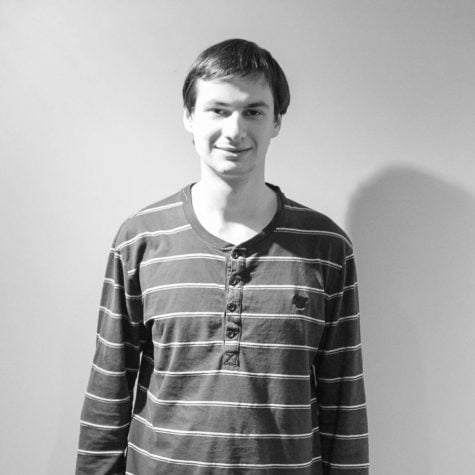The two women co-facilitating the Alternatives to Violence Project workshop introduced themselves as “Natural” Nancy and “Angelic” Angeline. It was Jan. 16, a Friday evening, and a handful of students, alumni and others had gathered in the living room of Campbell House, clutching cups of tea.
The participants’ first task was to choose an AVP name of their own, just as the facilitators had, by adding a positive, alliterative adjective to their first name. This would be how they introduced themselves for the rest of the three-day retreat. Between selecting and remembering adjectives for everyone, the whole room was soon laughing.
“(AVP) offers an opportunity to meet new people and engage with them on a different level,” said Kacey Minnick ’13 , one of the participants in the workshop. “It offers insight into how people perceive violence and nonviolence.”
First held in 1975, AVP workshops were developed at the Green Haven Prison in New York, in response to the 1971 Attica Prison riot, which led to the death of several inmates and guards. Since then, it has spread to 35 states and 40 countries. While most of the programs in the U.S. are still held in prisons, there are numerous community workshops as well, both in the U.S. and around the world.
According to “Natural” Nancy Shippen, workshops have been run for Christians and Muslims in Nigeria, Hutus and Tutsis in Rwanda and even the Kenyan police force.
“It’s a hugely powerful way to expand your knowledge and experience while learning some useful skills,” said Shippen.
Phoebe Hogue-Rodley, sophomore and member of the Quaker Leadership Scholars Program, decided to bring this workshop to Guilford along with sophomore Eva Cosgrove, the Conflict Resolution Center and the peace and conflict studies department. She had done the workshop once before but wanted to revisit the training as a potential way to address injustice in the criminal justice system.
“Doing the workshop for a second time affirmed my feeling that AVP is important … and something we should be pursuing at this college as part of our mission statement,” said Hogue-Rodley.
The workshop is highly interactive and involves a balance between discussion, activities and “light ‘n’ livelies,” or icebreaker activities, to get people moving and give participants a break between heavy topics.
A major focus of the weekend was a series of role-plays, giving participants a chance to practice their conflict resolutions skills in various scenarios. Most of the incidents were relatively benign, like arguments with parents or neighbors. Others were more violent or dangerous. All were things that could conceivably happen.
There was also time for more positive conversations, including a time on Sunday to share something — a poem, story, book or song — that gave the participants strength or encouragement. The “light ‘n’ livelies” got people out of the small living room and moving around while lunch gave people a less structured time to build community.
Houge-Rodley hopes to have another workshop later this semester.
“It’s a draining workshop … and I’m working on ways to spread AVP out and get students the basic certification with maybe fewer hours,” she said. “I’m hoping to make it an institution, like Understanding Racism.”
Despite the long weekend, all participants interviewed afterwards had found something of value in the workshop.
“Everything … was refreshing,” said Jesse Garvin, a first-year at Guilford Technical Community College who also attended the workshop. “I learned a few things about myself. (I would recommend it) if for no other reason than the camaraderie.”








Nancy Shippen • Feb 8, 2015 at 2:02 pm
Thank you for sharing the workshop with the wider Guilford community. It was a pleasure to be with you.
The workshops are a big time commitment but their impact had been remarkable in a huge variety of situations. I have never met a person who couldn’t use some experiential practice in community building, affirmation, communication and conflict resolution. For those of you interested in becoming peacebuilders, becoming a facilitator is an invaluable skill available of little or no cost except your willingness to invest your time.
This weekend is the first Advanced workshop in the UN camp in Sulaymaniyah, Iraq.
Natural Nancy Shippen